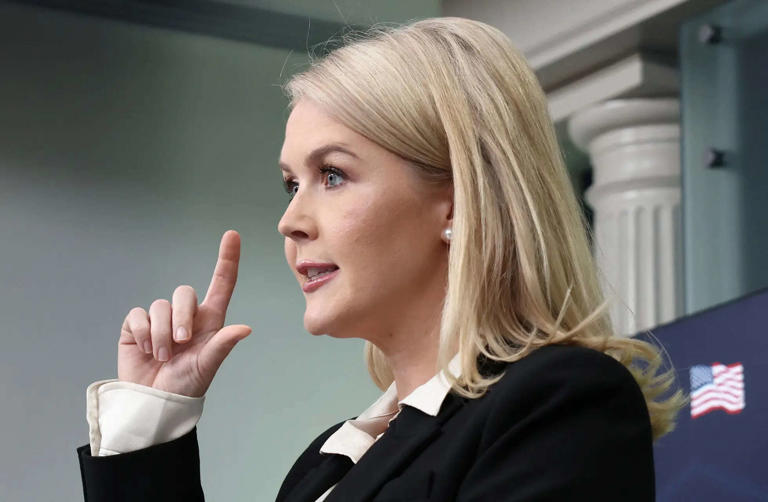White House Blasts Court Ruling Blocking Trump Tariffs, Vows to Fight Back
White House Condemns Court Ruling That Blocks Trump’s Tariff Measures, Vows to Appeal
In a significant legal and political development, the White House has strongly criticized a federal court decision that blocked a wide array of tariffs implemented under President Donald Trump’s renewed trade strategy. Calling the ruling “blatantly wrong,” the administration expressed full confidence that the decision would be overturned through appeal, as it scrambles to preserve a cornerstone of Trump’s economic and diplomatic approach.
Since returning to the presidency in January, President Trump has been aggressively reshaping the United States’ global trade relationships. Central to his strategy has been the controversial use of tariffs as a negotiation tool aimed at pressuring countries to the bargaining table. However, the abrupt imposition of these levies—targeting both allies and rivals—has unsettled global markets, disrupted supply chains, and sparked backlash from international partners and domestic industries alike.
The Court of International Trade, in a ruling delivered by a three-judge panel, found that President Trump had overstepped his executive authority in deploying the tariffs, and consequently blocked most of the duties introduced since he resumed office. The court ruled that Trump’s use of the International Emergency Economic Powers Act of 1977 (IEEPA) did not grant the president unbounded authority to impose tariffs on goods from virtually every country in the world. The judges clarified that such a broad interpretation of the IEEPA would be unconstitutional, as it would effectively delegate congressional control over trade policy to the executive branch without limits.
Reacting swiftly, attorneys representing the Trump administration filed an appeal and were given ten days to comply with the court’s mandate to begin reversing the tariffs affected by the ruling. Despite the legal setback, administration officials struck a defiant tone. Peter Navarro, Trump’s trade adviser, stated on Bloomberg Television that “nothing’s really changed,” emphasizing that the administration had anticipated legal challenges and remained unfazed. Meanwhile, Kevin Hassett, Director of the National Economic Council, downplayed the potential impact, referring to the court’s decision as a temporary “hiccup” caused by “activist judges.” He confirmed that alternative measures exist but are not currently being pursued.
The tariffs, which were rolled out in phases since April, began at a 10 percent base rate but were significantly steeper in some cases, such as the additional 145 percent duties on Chinese goods. Though many of these measures have been temporarily paused to allow room for negotiations, the global trade community remains wary. China responded firmly, urging the United States to revoke what it called “wrongful unilateral tariff measures,” reflecting the mounting international pressure on the Trump administration.
Canadian Prime Minister Mark Carney welcomed the U.S. court’s decision but cautioned that trade relations remain strained due to lingering sector-specific tariffs and ongoing threats of escalation. In Asia, Japan’s tariffs envoy Ryosei Akazawa announced that Tokyo would carefully review the court ruling as talks in Washington progressed. Market reactions were mixed: Asian stocks climbed on the news, while U.S. indices fluctuated, and European markets closed slightly down amid uncertainty about the long-term implications.
Despite the court’s decision, some of Trump’s tariffs—including the 25 percent duties on imported autos, steel, and aluminum—remain in effect. The administration argues that these measures are necessary to protect national security and address trade imbalances, a stance that has drawn criticism both domestically and abroad.
The federal court’s verdict stemmed from two separate lawsuits filed by a coalition of businesses and state governments. At the core of their argument was the claim that President Trump had unconstitutionally usurped Congress’s exclusive authority to regulate commerce and impose taxes. The ruling may eventually reach the Supreme Court, analysts suggest, but even a high court review is unlikely to mark the definitive end of Trump’s tariff-driven trade war. The White House could seek alternative legal avenues or pursue congressional authorization to maintain or expand its tariff regime.
This ruling not only marks a legal turning point but also poses a serious challenge to the broader Trump doctrine on international trade. It places a spotlight on the balance of power between branches of government and raises questions about the limits of executive authority in trade matters.
For video news, visit our YouTube channel THE OLIGO.

